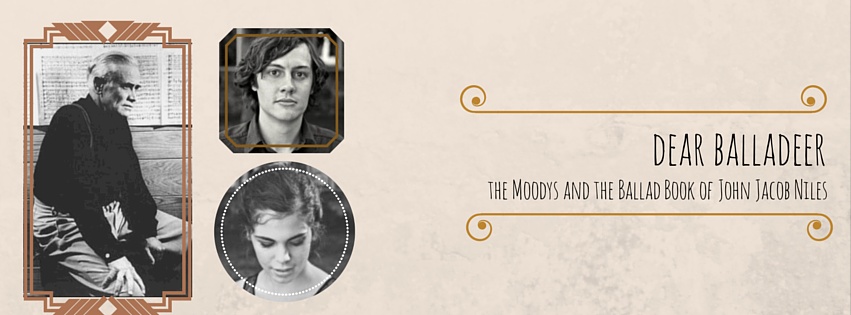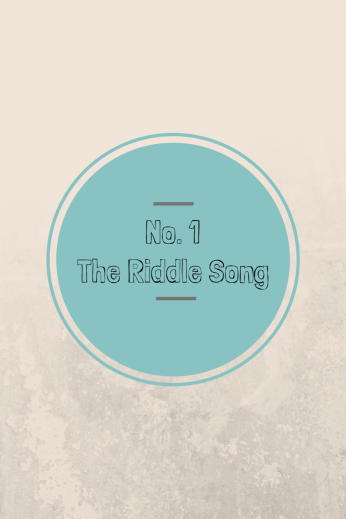John Jacob Niles grouped his ballads according to their corresponding Child Ballad (Francis James Child was another ethnomusicologist who collected ballads in the United Kingdom in the 19th century), and so his book begins with songs derived from Child No. 1, “Riddles Wisely Expounded.” Since we’re recording songs as they appear in the book, “The Riddle Song” becomes our first song in this project.
It is hard to imagine a better beginning, though. The way I see it, The Riddle Song is a perfect first song, for the following reasons:
1. It has been performed, a lot. Unlike most of the songs we’ll do for this project, this ballad is very well known, and has been recorded many times. It even appears in a few movies. It is a little done. Our challenge, then, of making this song relevant today is all-the-more difficult. If we’ve succeeded, then we’re on the right track.
2. The reason why it’s so done, though, is because it is about the impossible realized. It is about paradoxes resolved, the way in which something that seems improbable proves true. In a sense, that means it is about quotidian magic: how wonderful that sleeping babies do not cry, that cherries in bloom are without stones. Through playing these ballads, we seek to reconnect with our ancestors – how marvelous then that what proved miraculous to them those decades ago still appears so to us today.
3. Dear Balladeer is, in some sense, a riddle unto itself. John Jacob Niles was an incredibly enigmatic figure, blurring the distinctions between folk song and original, fantastic and fact. So too, the truth of the folk song, so dearly felt, often lies just beyond reach, the stories that inspired these songs long past, their authors long dead.
4. It is a treasure of a lullaby. Sing it to your little one, as we have done, and feel the softness of the last line, “A baby when it’s a-sleepin’, there’s no cryin’.” Your hope, of course, is that by this line of the song you’ve lulled the baby to sleep.
The Riddle Song (Niles No. 1 B)- Collected 1933 from Wilma Creech of Pine Mountain, KY
“I gave my love a cherry that hath no stone,
I gave my love a chicken that hath no bone,
I gave my love a thimble that hath no end,
I gave my love a baby that’s no cryin’.”
“How could there be a cherry that hath no stone?
How could there be a chicken that hath no bone?
How could there be a thimble that hath no end?
How could there be a baby that’s no cryin’?”
“A cherry when it’s a-bloomin’, it hath no stone.
A chicken when it’s a pippin, it hath no bone.
A thimble when it’s a-rollin’, it hath no end.
And a baby when it’s a-sleepin’, there’s no cryin’.”
Jonathan Moody: vocals, barritone and bass recorders, guitar, mixing
Rebecca Moody: vocals, piano, glockenspiel


Awesome work Jonathan and Becca!!!!!!!!!!!!!!!!!!!!!!!!!!!!!!!!!!!
LikeLiked by 1 person
So dame cute
LikeLike
Tremendous…
LikeLike